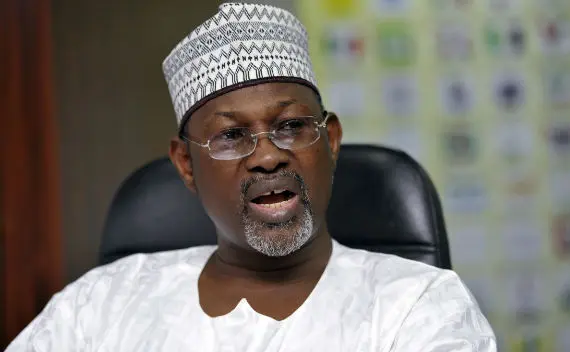Former Independent National Electoral Commission (INEC) chairman, Prof. Attahiru Muhammad Jega, has recommended comprehensive reforms in the nation, including constitutional restructuring, governance cost-cutting measures and economic diversification to secure Nigeria’s future amidst prevailing challenges.
Jega emphasised the importance of learning from successful federations like the US, Canada and India. His proposals include electoral and judicial reforms, anti-corruption measures, citizen awareness and a holistic approach to security for sustainable socio-economic development.
Jega made the call in Bauchi yesterday at a convocation lecture delivered at the Bauchi State University, Itas-Gidau with the theme: “Safeguarding Nigeria’s Future: Prioritising Citizen’s Welfare and Security Amidst Challenges”.
In order to safeguard Nigeria’s future and citizens’ welfare amidst security challenges, he said one can offer a number of practical recommendations relating to the articulated structural, systemic and governance as well as value-orientation issues highlighted in the presentation.
With regard to the structure of the Nigerian federation, Jega said it was highly recommended as follows: “That before 2027, some form of restructuring of the Nigerian federation should be embarked upon through evidence-based constitutional reforms, the objectives of which should be to deconcentrate powers and resources from the federal tier and to spread them to those of the state and local governments.
“In doing this, best practices could be learnt from model federations such as India, Canada and the USA in the areas of revenue generation and sharing and adapted to our local context and circumstances,” he said.
He added that no additional states or local government areas should be created and the additional resources current states would get from the de-concentration of powers and resources would make all the 37 states and the FCT financially viable and facilitative of grassroots development.
Jega said the cost of governance at both the federal, state and local tiers of governance need to be drastically cut, and measures introduced to entrench transparency and accountability and effective anti-corruption oversight.
With regard to the structure of the Nigerian economy, he said; “Serious reform measures need to be introduced to diversify Nigeria’s earnings from dependence on export of crude oil, to expand investment in agricultural production and agro-allied processing both for the home market and for export; and revive, expand and reposition our industries and manufacturing enterprises, for production both for the home market and export.
“Conceive of and pursue economic growth and people-oriented development strategies, independent of the influence of IMF and the World Bank, relying on implementable development plans which are realistically implementable within a delineated time-frame.
“Reform the country’s fiscal and monetary policies to strengthen our productive enterprises, human capital and currency.
“Conceive of and implement employment generation as well as entrepreneurship development strategies to help constructively address the challenges of the youth bulge in Nigeria
Nigeria should become more actively involved in south-south cooperation and development initiatives, in particular, in the BRICS+.”
On addressing systemic and governance challenges, he again called for amendment of the Electoral Act 2022 to remarkably improve upon the legal framework for future elections with integrity.
“In particular pay attention to reforming the role of political parties in the leadership recruitment and candidate selection processes at all levels and tiers of governance,” he said.
He stressed the need to pursue reforms to improve and protect the integrity of the judiciary, as well as find a way of insulating them from the corruptive politics of electoral dispute resolution through litigation.
Speaking further, Pro. Jega called for improving the process of appointments into INEC with a view to protecting it from capture by crooked politicians and partisan pressures and influences.
Jega also strengthened the need to expand the scope of the work of anti-corruption agencies and institutions to mitigate the damaging impact of corruption in the Nigerian political economy.
He added; “Institute and initiate reform measures that would ensure not only substantial reduction in the cost of governance at all levels, but also effective and transparent preparation, monitoring and implementation of budgets, as well as policies and projects.
“With regard to states’ role in safeguarding the security and welfare needs of the citizens, it is recommended as follows: The Constitution should be amended to explicitly recognize the equal rights of all citizens, irrespective of their ethnic status or affiliation, and regardless of whether they are perceived as ‘indigenes’ or ‘settlers’. Citizenship rights should, and must, triumph over any other particularistic, primordial rights.
“The citizens in general, need to understand their rights, duties and obligations as citizens, they need to enhance their active participation in all aspects of societal development, and they need to contribute effectively to peace-building and good governance for sustainable socioeconomic development in Nigeria.
“There is the need for greater citizens’ awareness, nurtured through civic and political education not only by the government, but through involvement of civil society and community-based organisations.”
He averred that there was the need for transparency and accountability of government and respect for the rule of law.
He explained that these are conditions for the creation and perpetuation of social trust, cooperation and active participation of citizens in the development of their country.
“There is the need for continual, far-reaching reforms on the citizens’ welfare provisioning at all levels of government, so as to advance, protect, a having noted the role of the state to pay attention to citizens’ welfare in a democratizing country like Nigeria, it is recommended that defend, their human security and dignity.
“There is the need for a comprehensive review and reform of the security architecture in Nigeria, with targeted priority on policing reforms and repositioning, in terms of recruitment, training, motivating and equipping them for internal maintenance of law and order.
“A focus on training and retraining of the armed forces for their core role of protection and defense of the territorial integrity of the country and assisting the police in internal security only when the police are overwhelmed, and armed forces are formally called upon to provide support; and general training and retraining of all the security forces and agencies, with regards to intelligence sharing and joint security operations, with carefully defined roles for each security sector/agency.
“Ultimately, the approach to security provisioning in Nigeria needs to be predicated on a broader and more holistic definition of security, which is human security in all of its significant components, rather than just physical protection of lives and property, which seems to be the prevailing but narrow definition of security provisioning by the Nigerian state,” he added.





